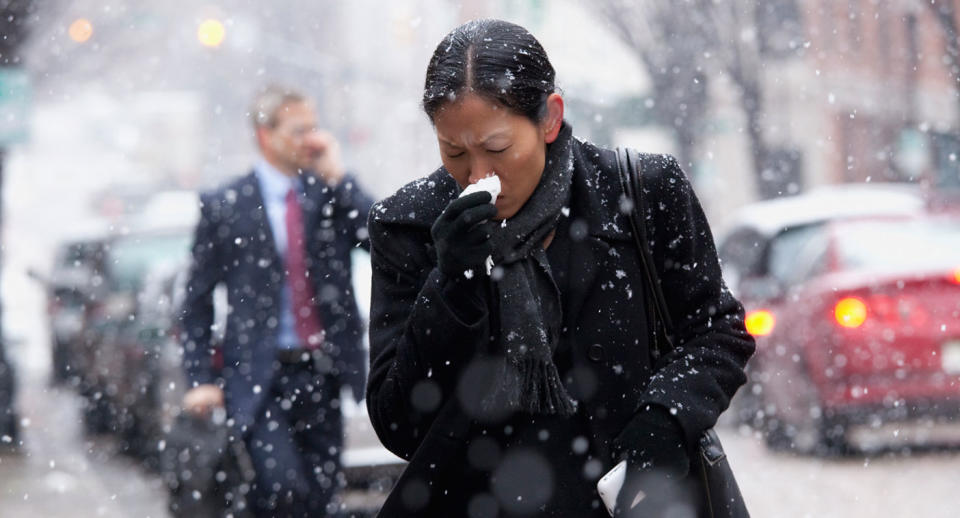Why do you get a runny nose when it's cold?

There are a lot of great things that come with the colder weather: holidays, hot chocolate and hearty meals. However, the drop in temperature often also means winter colds and unfavourable snow storms.
If you walked to work this morning and couldn’t help but notice you had a runny nose, you aren’t alone. But don’t worry, it doesn’t necessarily mean you’re sick. While it’s common for your nose to run when you have a cold or the flu – which is actually called rhinorrhea – there are other reasons for a runny nose.
ALSO SEE: Why your body does odd things
Every time we breathe through our nose, it warms and humidifies the air before traveling to the lungs. When the temperature drops, the air is a lot colder and drier, meaning the tissue in the nose automatically produces more fluid to make sure it protects the sensitive lung tissue. If the nose overproduces this warming fluid to combat the cold air, the excess drips out – causing a runny nose.
According to Everyday Health, researchers have named the non-flu related runny nose “skier’s nose” due to its regular occurrence in those who exercise outdoors in the cold. In a 1991 study published in the journal Annals of Allergy, Asthma and Immunology, found that 100 per cent of skiers complained about runny noses while on the slopes.
ALSO SEE: Are you too sick to go to work? Here’s how to tell
And if you’re concerned about getting a cold from the cooler weather, don’t worry – it’s a common myth. Researchers actually believe the reason people get colds more often in winter is because people spend more time indoors with other people — a perfect breeding ground for bacteria.
If your weather-responsive runny nose is really getting to you, you can take an over-the-counter decongestant. Or, as your mother said, bundle up and cover your mouth and nose with a scarf!
Let us know what you think by commenting below and tweeting @YahooStyleCA!
Follow us on Twitter and Instagram.



